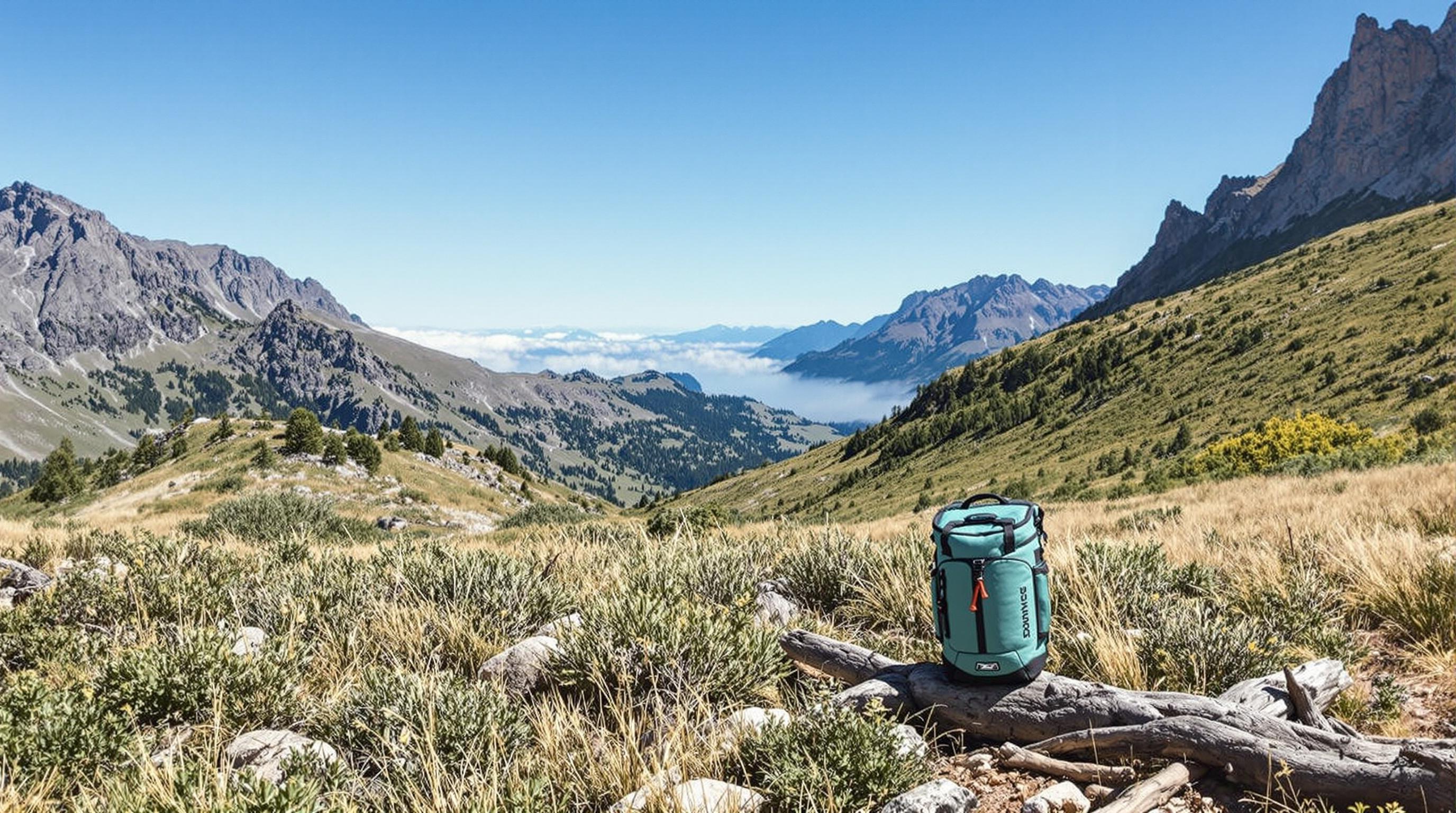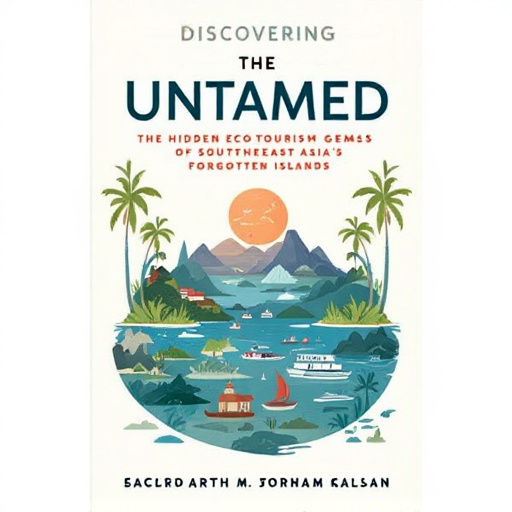Featured Articles
- 7 Best Portable Water Purifiers for Exotic Destinations Tested and Ranked for Ultimate Travel Safety
- Chasing the Unseen: Discovering the World's Most Mysterious and Controversial Hidden Paradises
- Discovering the Untamed: The Hidden Ecotourism Gems of Southeast Asia's Forgotten Islands
- Discovering the World's Hidden Fractals: Unveiling Exotic Destinations Through Nature's Patterns
- "Lost in Translation: Exploring the World’s Strangest Travel Customs in Exotic Destinations"
Wonders of the Unknown: Exploring the World's Hidden Paradises Beyond Popular Exotic Destinations
Wonders of the Unknown: Exploring the World's Hidden Paradises Beyond Popular Exotic Destinations
As we crave adventure and novelty, hidden paradises across the globe awaken our wanderlust, urging us to move beyond the well-trodden paths of popular destinations. This exploration serves not only to uncover breathtaking locales but also to highlight cultures, communities, and experiences that represent the true essence of travel.
Introduction to Hidden Paradises
Who among us hasn’t dreamed of finding that perfect, untouched destination? It’s the allure of the unknown, the thrill of discovering places that are often overlooked in the wake of mass tourism. According to a study from the World Tourism Organization (UNWTO), millions of tourists flock to well-known sites such as Paris, Bali, and New York each year, but what if the real treasures lie off the beaten path? In this article, we’ll explore some of the world’s hidden paradises that deserve our attention.
The Magic of Madagascar
Madagascar, the fourth largest island in the world, is a wildlife enthusiast's dream. With 90% of its wildlife found nowhere else on Earth, Madagascar boasts unique creatures like the lemur and the fossa. Imagine hiking through the Avenue of the Baobabs at sunrise, the trees looming like ancient sentinels. Despite its enchanting nature, many travelers are unaware of the richness that Madagascar offers. The tourism industry here is only beginning to burgeon, with significant potential for eco-tourism. According to National Geographic, around 89% of Madagascar's forests are still left untouched, providing travelers an opportunity to witness nature in its rawest form. Isn’t it time we started adding Madagascar to our travel bucket lists?
Stories and Secrets of Suriname
Let’s talk about Suriname, a small yet captivating country tucked away in South America. In fact, Suriname is so off-grid that it is often overshadowed by its larger neighbors like Brazil and Venezuela. Full of tropical rainforests, pristine rivers, and unique wildlife, Suriname offers unfiltered access to nature’s wonders. What’s particularly charming about Suriname is the mingling of cultures; the country is home to Indigenous peoples, descendants of African slaves, and Dutch colonizers. This melting pot has created a vibrant culture, and you can spend a whole day just exploring the unique culinary offerings—be sure to try pom, a delicious dish originating from the Javanese community.
Persuasive Tone: Why Go Further?
So why venture to these hidden gems instead of opting for the familiar? For starters, the numbers speak for themselves. The tourism industry has become a double-edged sword in destinations like Venice and the Maldives, leading to unsustainable practices and overcrowding. By choosing less popular locations, you’re not only supporting local economies but also preserving what remains of their delicate ecosystems. Imagine sipping a homemade beverage on a deserted beach in Cape Verde while the rest of the world hustles in crowded tourist traps. The ethical choice brings not just personal satisfaction but also contributes positively to communities that thrive on tourism.
Azores: The Untamed Islands of Portugal
If you're seeking a breathtaking experience, consider the Azores, an archipelago in the middle of the Atlantic Ocean. Each island has its unique charm—São Miguel captivates with its hot springs and crater lakes, while Pico impresses with its towering volcano. A report by the Azores' own government highlights that tourism is increasing, but still remains far lower compared to mainland tourist destinations. As you hike through lush green valleys and dive into the turquoise waters alongside dolphins, you’ll understand why this region is regarded as one of Europe’s best-kept secrets.
Case Studies: Communities on the Edge
Travel isn't just about individuals; it's about communities. Take Bhutan, for example, a country that measures Gross National Happiness over GDP. While many travelers have begun to notice Bhutan for its tranquility and breathtaking landscapes, the country's tourism approach preserves its culture and environment. The government limits the daily number of tourists—around 60,000 visitors in 2019—ensuring that its hidden paradises remain unspoiled. This model of controlled tourism has been studied by other developing nations looking to protect their unique identities while benefitting from global interest.
The Quirky Side: Bonkers Yet Beautiful
Hidden paradises can also be quirky! Consider the town of Chefchaouen in Morocco, famous for its blue-painted streets and buildings. Legend has it that the blue color keeps mosquitoes away—a claim that’s hard to verify yet wonderful to believe. This town isn't just visually stunning; it offers visitors a laid-back atmosphere often absent from major tourist hotspots. Strolling through Chefchaouen feels like stepping into a watercolor painting, and the locals’ warm hospitality will make you want to linger a little longer. As one traveler aptly put it, “It’s a dose of serenity in a chaotic world.”
North Sentinel Island: Zero Contact Adventure
Now, if you’re feeling adventurous and willing to delve into the truly forbidden, there’s North Sentinel Island. This tiny island, part of the Andaman and Nicobar Islands, is home to the Sentinelese tribe, one of the last people to remain untouched by modern civilization. The Indian government has declared it illegal to visit, effectively preserving their way of life. While speculation about their culture and lifestyle runs rampant, this example serves as a reminder that some hidden paradises remain shrouded in mystery and respect is paramount.
Nature’s Untouchables: The Importance of Preservation
Beyond the captivating sights and sounds, many of these hidden paradises are crucial to environmental conservation. The natural landscapes often harbor species on the brink of extinction. Did you know that the Ujung Kulon National Park in Indonesia is home to the last wild Java rhinoceros? The park's conservation efforts are far from limited to fauna; it also serves to protect vulnerable ecosystems from excessive tourism.
Why You Should Visit These Paradises
The reality is, engaging with these hidden paradises allows you to enrich your travel experience while making a point to protect vulnerable communities and ecosystems. Imagine diving deep into the underwater caves of Vanuatu or hiking the lesser-traveled trails of Hokkaido, Japan. Experiencing such diversity allows for a greater understanding of our world and the wonderful people in it. Consider it an investment—not just for yourself, but also for our planet.
Conclusion: The Road Less Traveled
There’s a phrase that says, “Not all who wander are lost,” and in this context, it rings ever so true. As you consider your next travel destination, remember that the world is full of hidden secrets awaiting your discovery. Whether you’re hiking the cliffs of Newfoundland or enjoying the calm serenity of the far-off islands of Vanuatu, know that adventure lies beyond the tourist maps. In exploring less familiar places, you provide much-needed support to local economies, environmental conservation efforts, and cultural preservation—all while enriching your life with unforgettable experiences. So pack your bags, embrace spontaneity, and let the wonders of the unknown be your guide.




